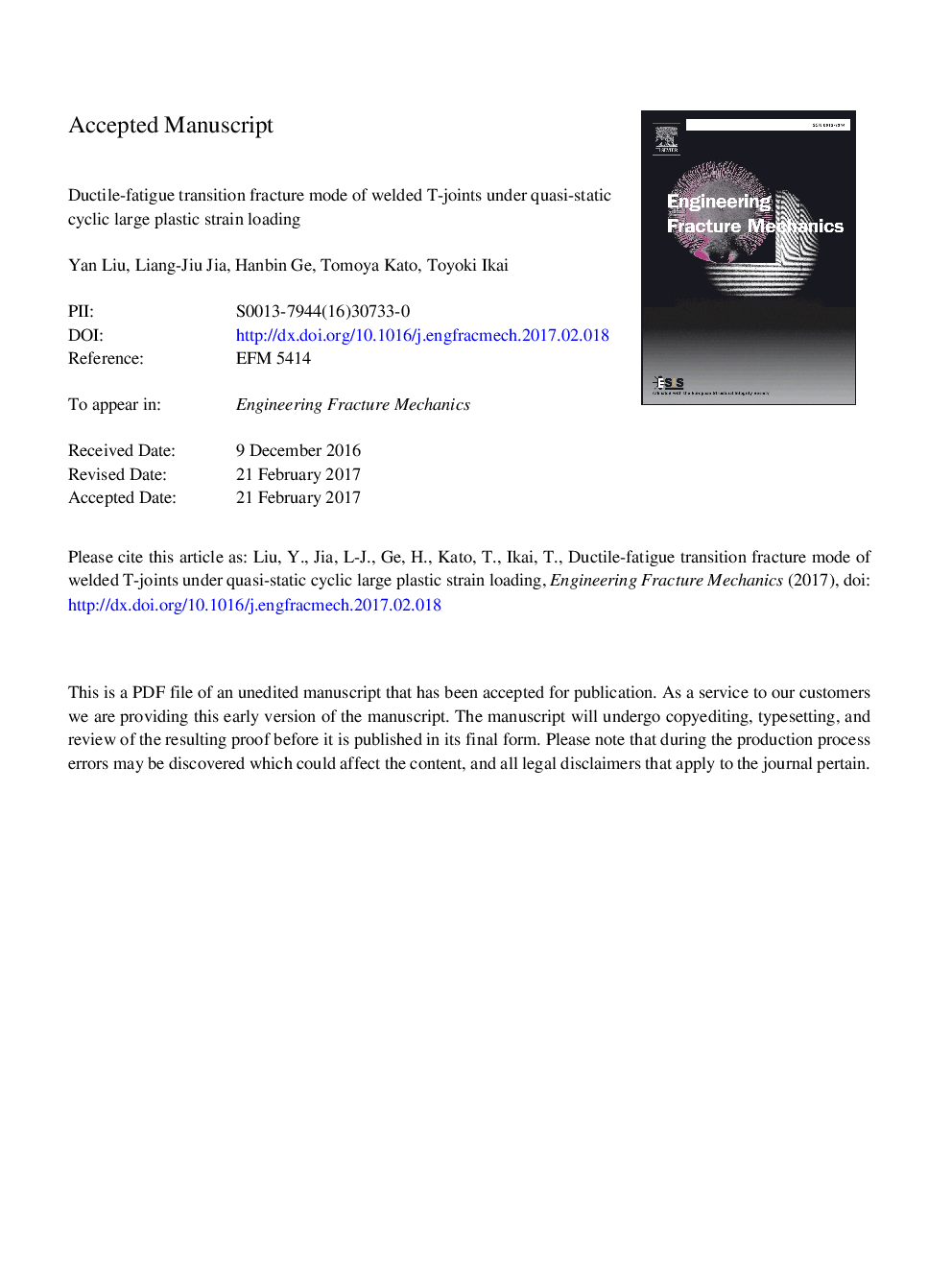| Article ID | Journal | Published Year | Pages | File Type |
|---|---|---|---|---|
| 5013899 | Engineering Fracture Mechanics | 2017 | 43 Pages |
Abstract
Welded structures experiencing a small number of large plastic strain reversals during a strong earthquake, can lead to ductile or fatigue fracture. Experimental study on a series of welded T-joints under cyclic large plastic strain loading is carried out to clarify their failure mechanisms in the ultra low cycle fatigue range commonly with a crack initiation life of several dozens of cycles. Effects of post-weld treatment, notch size, notch location and loading protocol on the failure process of the joints are studied. The experimental results indicate that the fracture is a transition mode of ductile and fatigue fracture. It is also found that the post-weld treatment can greatly improve the crack initiation lives of the joints, and the Charpy impact energy has a great effect on the cracking propagation rate. Formulae to evaluate the crack initiation lives of the tested specimens respectively in terms of ductility ratio and equivalent plastic strain are also proposed, and the effect of small strain amplitudes on the damage accumulation is explained based on the test results under various loading protocols.
Related Topics
Physical Sciences and Engineering
Engineering
Mechanical Engineering
Authors
Yan Liu, Liang-Jiu Jia, Hanbin Ge, Tomoya Kato, Toyoki Ikai,
